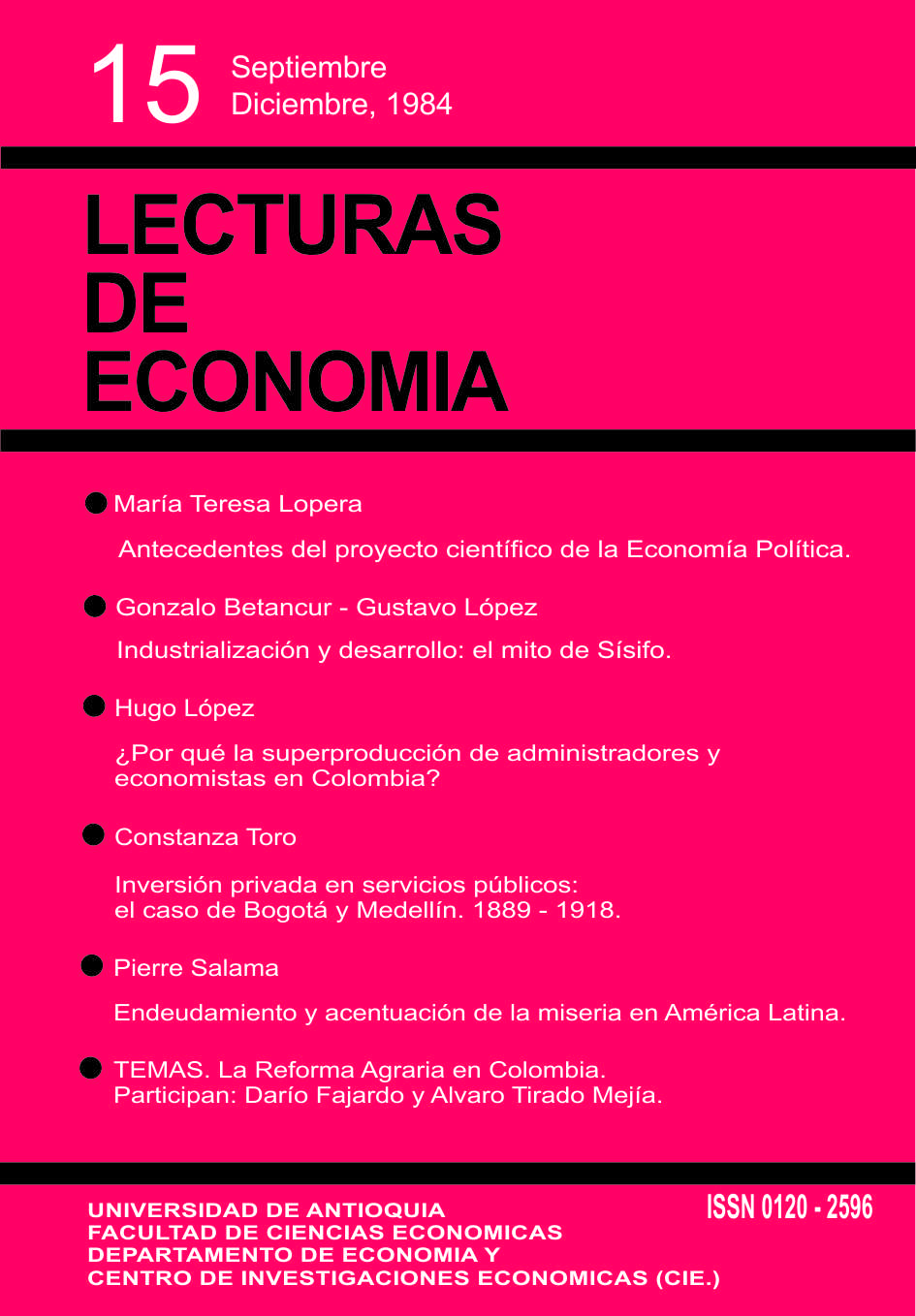Endeudamiento y acentuación de la miseria en América Latina
DOI:
https://doi.org/10.17533/udea.le.n15a10386Abstract
Resumen
Este artículo tiene como propósito mostrar que los altos niveles de endeudamiento a que han llegado los países latinoamericanos no es responsabilidad del Fondo Monetario Internacional o de los bancos internacionales. Este crecimiento de la deuda externa tiene su origen en el funcionamiento de los denominados regímenes de acumulación "excluyentes" y en la política económica seguida en la década de 1970. La "dolarización" de las economías, la baja de los salarios, el empobrecimientode amplias capas de la población y el agravamiento del déficit alimentario son quizás las consecuencias más dramáticas de dicho proceso para los pueblos latinoamericanos.
Abstract
These article shows that the level debt reached by the Latin American countries is not the responsibility of the International Monetary Fund or the international banks.The work of the so-called "Exclusive" Accumulation Regimes and the economic policy followed in the 70's are the origin of the growth rate of the foreign debt. The "dollarization" of the economies, the fall in real wages, the impoverishment of wide sectors of the population and the oppressive food deficit is perhaps the most dramatic consequences of that process for the Latin American people.
Palabras claves: FMI, endeudamiento externo, política económica, déficit alimentario.
Downloads
Downloads
Published
How to Cite
Issue
Section
License
This page, by Universidad de Antioquia, is licensed under a Creative Commons Attribution License.
Authors who publish with this journal agree to retain copyright and grant the journal right of first publication, with the article licensed under a Creative Commons Attribution-NonCommercial-ShareAlike License allowing others to share it as long as they acknowledge its authorship and original publication in this journal.
Authors can enter into separate, additional contractual arrangements for the non-exclusive distribution of the journal's published version of the work (e.g., post it to an institutional repository or publish it in a book), provided that these arrangements be not for profit and the journal be acknowledged as the original source of publication.
Authors are permitted and encouraged to post their papers online (e.g., in institutional repositories or on their websites), as it can lead to valuable exchanges as well as greater citation of the published work.







